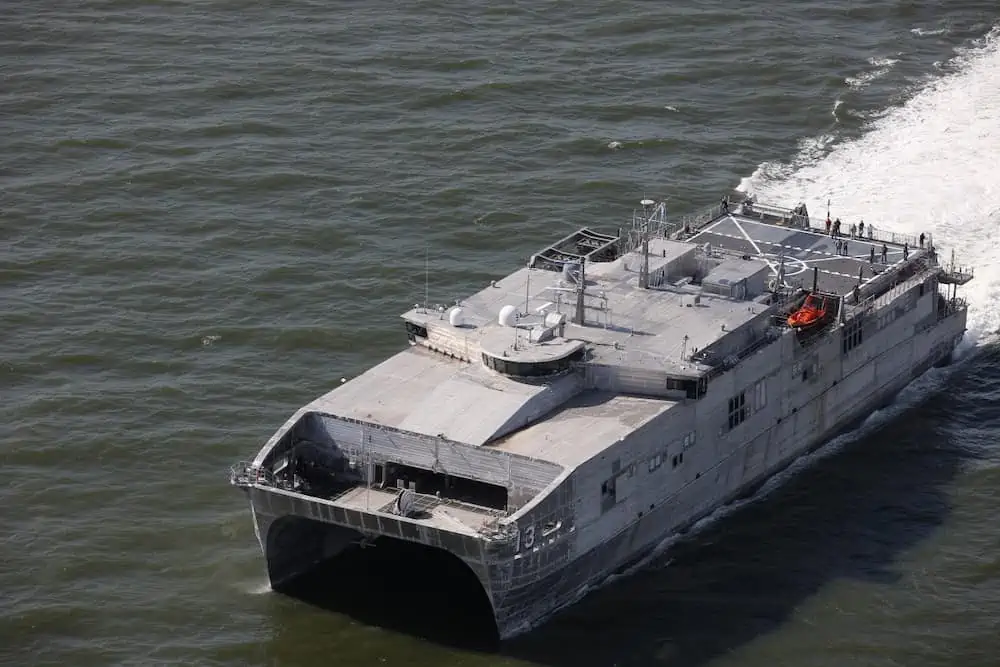
The future USNS Apalachicola (EPF-13) has successfully completed acceptance trials for the US Navy, including the demonstration of technology that will enable unmanned operations and autonomous missions.
Constructed at Austal USA’s Mobile Alabama shipyard, EPF-13 is the first Spearhead-class Expeditionary Fast Transport (EPF) ship with capabilities for V-22 Osprey flight operations and enhanced medical support. It is also the US Navy’s largest ship with the capability to operate as an Unmanned Surface Vessel (USV).
“Apalachicola is the first EPF we have delivered with autonomous capability that demonstrates new technologies that will ultimately enable unmanned missions for the United States Navy,” said Austal Limited Chief Executive Officer Paddy Gregg. “We’re very pleased with the performance of the ship, which was rigorously tested over several months by the Navy and teams from Austal USA, L3Harris and General Dynamics. We’re looking forward to seeing what she can do when she commences operations with Military Sealift Command following delivery later this calendar year.”
According to Austal, during acceptance trials comprehensive testing is conducted on the ship’s major systems and equipment to demonstrate their successful operation and mission readiness. The US Navy’s Board of Inspection and Survey participates throughout the trials to validate the quality of construction and compliance with Navy requirements.
In addition to builder’s trials, EPF 13 went to sea five times over the past several months allowing Austal USA, L3Harris and General Dynamics Mission Systems to test and analyze typical ship systems and those resulting from autonomous design and construction contract modifications required by the Navy to establish EPF 13 as an autonomous prototype.
The work included installation of a perception and situation awareness suite, an autonomy controller, an autonomous machinery control system, and automation enhancements to the machinery plant improving hull, mechanical, and electrical reliability. The enhancements will allow EPF-13 to operate autonomously for up to 30 days while retaining the capability for manned operation.
USNS Apalachicola is planned for delivery by the end of 2022 and will be the 13th EPF ship to join the United States Military Sealift Command’s global fleet.
Find suppliers & manufacturers of Uncrewed Marine Vessels >>


















